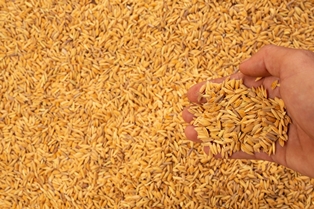A balanced diet is essential for maintaining optimal health and well-being. It provides the necessary nutrients our bodies need to function correctly. This article delves into the key components of a balanced diet—fruits, vegetables, protein, grains, and dairy—and explores how to incorporate them into your daily meals.
The Importance of a Balanced Diet
A balanced diet provides a diverse array of nutrients that support the body’s complex functions. These nutrients include vitamins, minerals, fiber, and macronutrients such as carbohydrates, proteins, and fats. Eating a variety of foods helps prevent nutrient deficiencies and reduces the risk of health issues such as obesity, heart disease, diabetes, and certain cancers.
Fruits: Nature’s Sweet Treat

Nutritional Benefits
Fruits are rich in essential vitamins, minerals, and antioxidants. They are particularly high in vitamin C, potassium, and dietary fiber. Antioxidants in fruits help combat free radicals, which can damage cells and lead to chronic diseases.
Incorporating Fruits
- Daily Intake: Aim for at least 2 servings of fruit each day.
- Variety: Include a mix of different fruits like berries, apples, oranges, bananas, and melons.
- Meals and Snacks: Add fruit to your breakfast cereal, have a piece as a snack, or include it in your salads and desserts.
Vegetables: The Powerhouse of Nutrients

Nutritional Benefits
Vegetables are low in calories but high in vitamins, minerals, and dietary fiber. They are essential for digestive health, maintaining a healthy weight, and reducing the risk of chronic diseases.
Incorporating Vegetables
- Daily Intake: Aim for at least 3-5 servings of vegetables each day.
- Variety: Include a range of colors and types, such as leafy greens, cruciferous vegetables, root vegetables, and legumes.
- Meals: Incorporate vegetables into every meal, whether through salads, soups, stir-fries, or as side dishes.
Protein: The Building Blocks of the Body

Nutritional Benefits
Proteins are crucial for building and repairing tissues, making enzymes and hormones, and supporting immune function. They are made up of amino acids, some of which are essential and must be obtained from the diet.
Sources of Protein
- Animal Sources: Meat, poultry, fish, eggs, and dairy products.
- Plant Sources: Tofu,lentils, nuts, Beans, seeds, tempeh, and whole grains.
Incorporating Protein
- Daily Intake: Aim to include a source of protein in every meal.
- Variety: Mix animal and plant-based proteins to benefit from different nutrient profiles.
- Meals: Add beans to soups and salads, include eggs in your breakfast, and choose lean meats or fish for your main courses.
Grains: The Energy Providers

Nutritional Benefits
Grains, especially whole grains, are a significant source of energy and provide essential nutrients such as fiber, B vitamins, and minerals like iron, magnesium, and selenium.
Types of Grains
- Whole Grains: Brown rice, quinoa, oats, whole wheat, barley, and bulgur.
- Refined Grains: White rice, white bread, and pasta. These are less nutritious as they have been stripped of bran and germ during processing.
Incorporating Grains
- Daily Intake: Aim for at least 3 servings of whole grains each day.
- Choosing Whole Grains: Substitute refined grains with whole grains in your meals.
- Meals: Use whole grain bread for sandwiches, enjoy oatmeal for breakfast, and opt for brown rice or quinoa as side dishes.
Dairy: The Calcium-Rich Group

Nutritional Benefits
Dairy products are rich in calcium, vitamin D, potassium, and protein. These nutrients are vital for bone health, muscle function, and overall growth and development.
Sources of Dairy
- Traditional Sources: Milk, cheese, yogurt, and kefir.
- Alternative Sources: Fortified plant-based milks like almond, soy, and oat milk.
Incorporating Dairy
- Daily Intake: Aim for 2-3 servings of dairy each day.
- Choosing Low-Fat Options: Opt for low-fat or fat-free dairy products to reduce saturated fat intake.
- Meals: Add milk to your cereals, enjoy yogurt as a snack, and use cheese in moderation in your dishes.
Creating a Balanced Plate
A balanced plate is a visual guide to help ensure that each meal provides the necessary nutrients for optimal health. The concept of a balanced plate is simple yet effective, emphasizing the inclusion of all major food groups in appropriate proportions.
Half the Plate: Fruits and Vegetables
Aim for half of your plate to be filled with fruits and vegetables. These provide essential vitamins, minerals, and fiber, contributing to overall health and disease prevention. A variety of colors and types should be included to ensure a wide range of nutrients. For instance, leafy greens, red tomatoes, and orange carrots each offer different beneficial compounds.
A Quarter of the Plate: Protein
One quarter of the plate should consist of protein sources. This can include lean meats, poultry, fish, beans, lentils, tofu, and nuts. Protein is essential for muscle repair, enzyme production, and immune function. Including a mix of animal and plant-based proteins can offer a diverse range of nutrients and health benefits.
A Quarter of the Plate: Grains
The remaining quarter should be dedicated to grains, with a preference for whole grains such as brown rice, quinoa, whole wheat, and oats. Whole grains are rich in fiber, B vitamins, and other essential nutrients, and they provide sustained energy throughout the day.
Incorporating Dairy
Dairy or dairy alternatives should be included in your meals to ensure adequate calcium and vitamin D intake. Options like milk, yogurt, and cheese can be added as side items or ingredients in your main dishes.
Tips for Maintaining a Balanced Diet
Maintaining a balanced diet is crucial for overall health and well-being. Here are some practical tips to help you achieve and sustain a balanced diet:
- Eat a Variety of Foods
Incorporate a wide range of foods from all the major food groups: fruits, vegetables, grains, protein, and dairy. This ensures you get a diverse array of nutrients that support various bodily functions.
- Portion Control
Be mindful of portion sizes to avoid overeating. Using smaller plates can help control portions and prevent consuming excess calories.
- Choose Whole Foods
Opt for whole, unprocessed foods whenever possible. Whole grains, fresh fruits, and vegetables provide more nutrients and fiber compared to their processed counterparts.
- Limit Added Sugars and Sodium
Reduce the intake of foods and drinks high in added sugars and sodium. These can contribute to weight gain, high blood pressure, and other health issues. Choose natural sweeteners and seasonings like herbs and spices.
- Stay Hydrated
Drink plenty of water throughout the day. Proper hydration is essential for digestion, nutrient absorption, and overall health. Limit sugary beverages and opt for water, herbal teas, or infused water.
- Plan and Prepare Meals
Planning and preparing meals ahead of time can help you make healthier choices and avoid the temptation of fast food or unhealthy snacks. Batch cooking and meal prepping can save time and ensure balanced meals are always available.
- Listen to Your Body
Pay attention to hunger and fullness cues. Eat when you’re hungry and stop when you’re satisfied. This can help prevent overeating and promote a healthier relationship with food.
FAQs Section
Dairy products are a key source of calcium, vitamin D, and high-quality protein. These nutrients are essential for strong bones and teeth, muscle function, and overall health. Options include milk, yogurt, cheese, and fortified dairy alternatives.
Yes, plant-based proteins can be just as nutritious as animal-based proteins. Combining different plant-based sources like beans, lentils, nuts, seeds, and soy products can provide all essential amino acids and offer a variety of health benefits.
Yes, you can meet your nutritional needs without dairy by consuming fortified plant-based alternatives like almond milk, soy milk, or oat milk, which provide calcium and vitamin D. Additionally, include other calcium-rich foods like leafy greens, nuts, and seeds.
Grains are an essential source of carbohydrates, which provide energy for the body. Whole grains also offer fiber, B vitamins, and other important nutrients that support digestive health, energy metabolism, and overall well-being.
Conclusion
A balanced diet is vital for maintaining good health and preventing chronic diseases. By incorporating a variety of fruits, vegetables, protein, grains, and dairy into your daily meals, you can ensure your body receives the nutrients it needs to function optimally. Start today by making small, sustainable changes to your eating habits and enjoy the benefits of a well-balanced diet.
